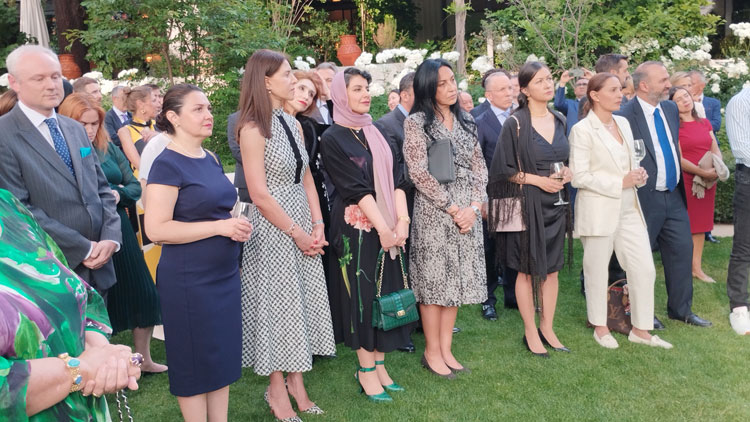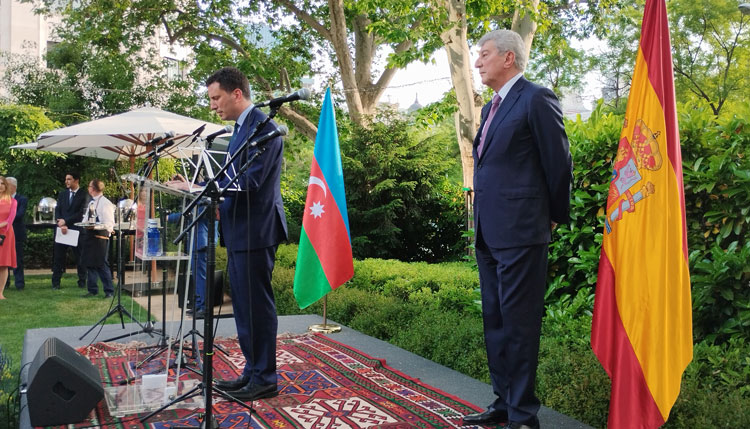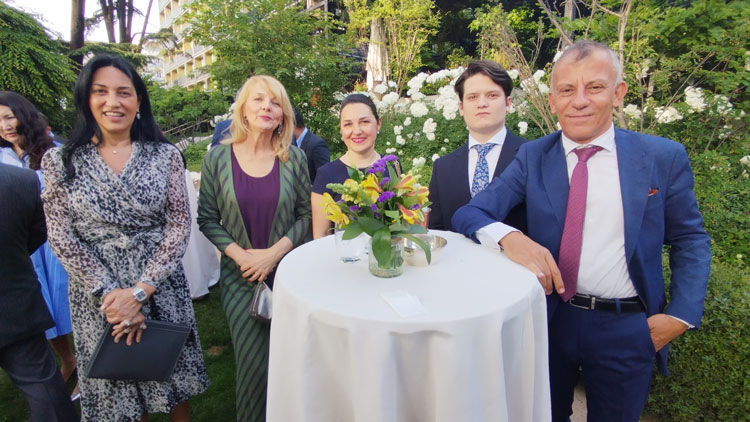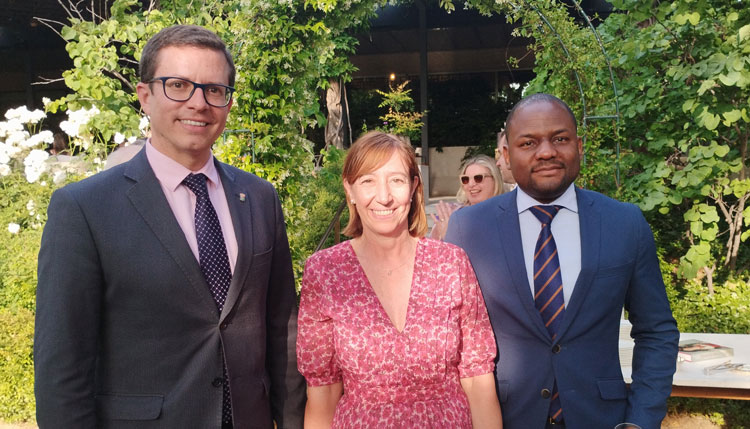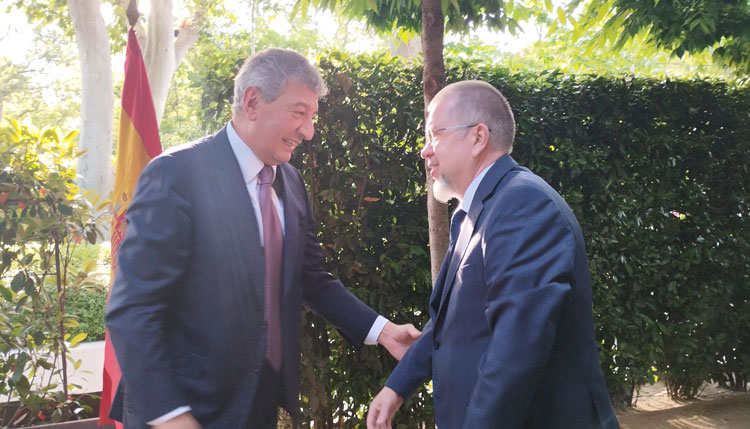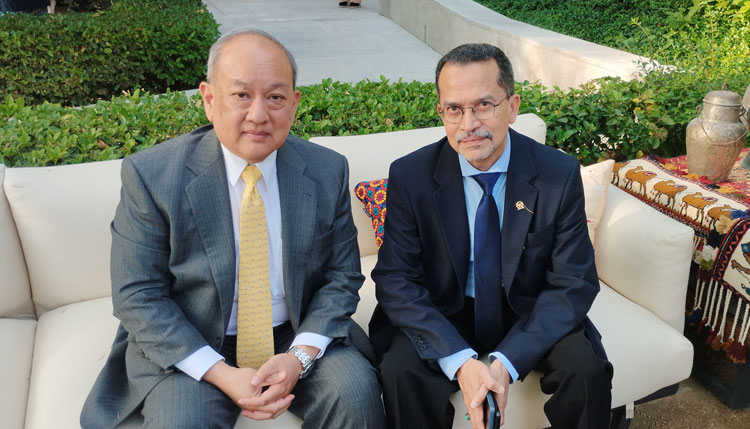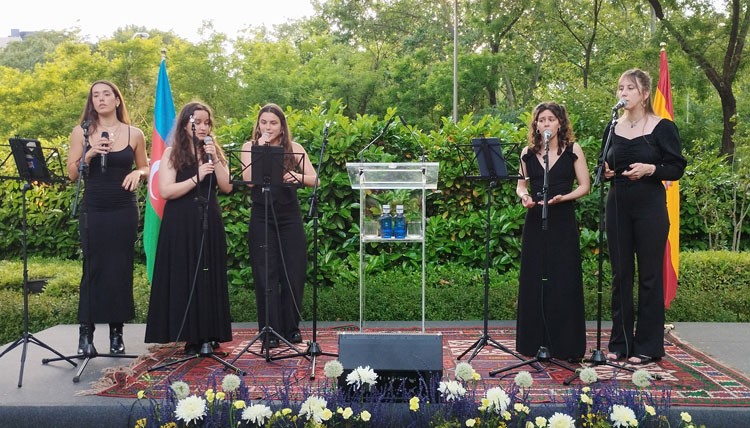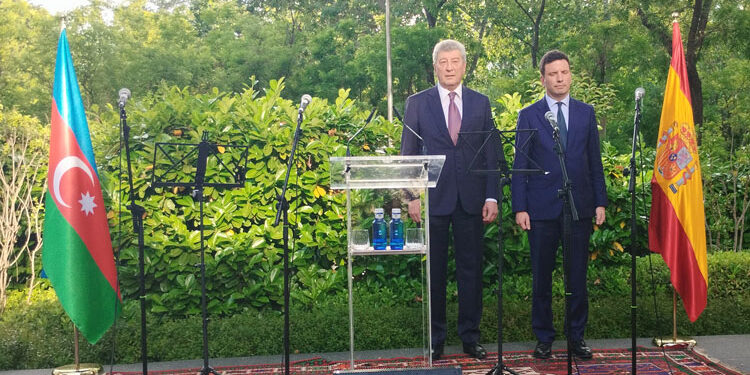Juan David Latorre
Last Monday, the Embassy of Azerbaijan celebrated its National Day with a reception at which Ambassador Ramiz Hasanov stressed that “today, Azerbaijan has consolidated itself as one of the leading countries in the region, with outstanding achievements in political, economic and social areas”.
“In addition to hosting major international events, continued the Azerbaijani ambassador, my country is positioned as a platform for cooperation in various areas, from humanitarian issues to energy and transport, from geopolitics to security and intercultural dialogue. Azerbaijan is also a key player in energy security, playing a crucial role in the diversification and security of Europe’s energy supply”. Ambassador of Azerbaijan Ramiz Hasanov began his speech with these words.
Regarding relations with Spain, the ambassador noted that “they have entered a new phase of development. Political dialogue and institutional cooperation are deepening. In particular, the visit of the President of the Government of Spain, Pedro Sánchez, to Baku within the framework of COP29 has been a significant milestone that has contributed to strengthening and expanding our bilateral relations. Within the framework of the visit to Baku of the State Secretary for Trade, it was agreed to establish an intergovernmental commission between Azerbaijan and Spain, as well as a business forum which has opened up new possibilities for cooperation between our countries in multiple sectors”.
“Beyond the political and economic areas, he said, Azerbaijan and Spain also maintain fruitful cooperation in the fields of culture, education and mutual understanding.”
Ambassador Ramíz Hasanov concluded by stating that “the two countries are committed to moving forward together on the basis of mutual respect, trust and shared values. We are determined to further strengthen these relations”.
The Azerbaijani ambassador also reviewed the contemporary history of his country since the achievement of the first independence, proclaimed on 28 May 1918, with the creation of the democratic republic, “the first parliamentary republic of the East, he noted, which laid the foundations of the modern Azerbaijani state by showing a firm commitment to the principles of sovereignty, secularism and democratic governance. One of the most important legislative acts adopted by this republic was the granting of voting rights to women, even before many western countries. Although this independence was curtailed by the Soviet occupation in 1920, it left a fundamental legacy for the future statehood of Azerbaijan”.
“Upon regaining its independence in 1991, he concluded, the Republic of Azerbaijan took up this legacy, making significant progress towards internal stability and sustainable development, while actively contributing to peace, security and regional and international cooperation”.
Luis Fonseca, Director-General for North America, Eastern Europe, Asia and the Pacific of the Ministry of Foreign Affairs, European Union and Cooperation, took the floor and said: “We are celebrating 33 years of diplomatic relations, and in these years the determination of our countries to further deepen our bilateral relations has become clear.”
“Azerbaijan, continued the Director-General, stands in its own right as a country that strives to be a strategic actor in different areas, not only politically but also economically, especially energy, connectivity, as a new bridge linking Central Asia and Europe.”
